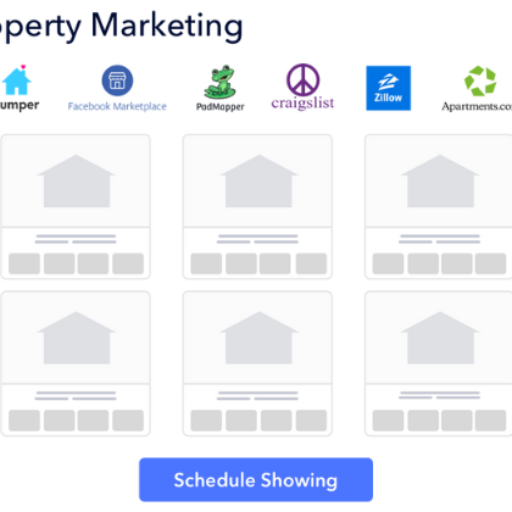TDH - Lease Negotiator-AI-powered lease negotiation tool.
AI-driven commercial lease advisor.
How can I negotiate a lower rent for my office space?
What are the key legal considerations I should be aware of in an office lease agreement?
Can you help me understand the implications of a break clause in my lease agreement?
What are some effective strategies for negotiating lease renewal terms?
Related Tools
Load More
Agent Agreement Legal Expert
Legal Expert in drafting and reviewing Agent Agreements (Powered by LegalNow https://legalnowai.com/)

The Negotiator
🇺🇸 Helps you negotiate your stuff. As good as Micheal Scott selling paper. - 🇧🇷 Inteligência Artifical para negociação - mesmo nível que Agostinho Carrara.

Contract Reviewer, Drafter, and Negotiator
A versatile contract assistant adept at reviewing, drafting, and negotiating. Offers strategies and identifies risks to streamline your contract dealings.

동천태양 (전국 부동산,아파트,상가,토지,빌딩 분석)
서울,인천,경기 수도권 아파트 ,부동산 비교 분석

Private Equity Managing Director
Harvard-educated, crew-rowing, private equity managing director

Rental Lease Agreements Forms
Rental Lease Agreements Forms by https://www.leasey.ai/ - Leasey.AI is the best Property management software for leasing automation
20.0 / 5 (200 votes)
Overview of TDH - Lease Negotiator
TDH - Lease Negotiator is designed to assist individuals and businesses in navigating the complexities of commercial lease negotiations. It serves as a digital guide, offering advice on legal, financial, and practical aspects of lease agreements. The tool simplifies legal jargon, breaks down financial implications, and helps users understand their negotiation leverage, aiming to empower them to make informed decisions. For example, in a scenario where a tenant is unsure how to negotiate a rent-free period or cap on service charges, TDH could provide insights on how to approach the landlord and suggest alternative terms that might be more favorable.

Key Functions of TDH - Lease Negotiator
Lease Term Clarification
Example
A tenant is presented with a draft lease agreement but finds it filled with complex legal terminology. TDH simplifies the language, explaining terms like 'triple net lease' or 'base rent escalation' in a way the tenant can easily grasp.
Scenario
A small business owner considering a five-year lease with an option to renew needs clarity on what obligations and rights they have under the renewal clause. TDH breaks down the legal language and suggests strategies to negotiate more favorable renewal terms.
Financial Impact Analysis
Example
A tenant wants to understand the long-term cost of agreeing to an annual rent increase based on the Consumer Price Index (CPI). TDH can project future rent costs based on historical CPI data.
Scenario
A retailer is negotiating a lease in a shopping mall with rent tied to a percentage of gross sales. TDH helps the tenant calculate different scenarios based on their expected revenue, enabling them to decide if the rent structure is viable.
Negotiation Strategy Development
Example
TDH guides a tenant through a scenario where they want to request a rent abatement period during the build-out phase of a new restaurant. TDH suggests specific phrasing and justifications to strengthen the tenant's position.
Scenario
A tech startup wants flexibility in its office lease, fearing rapid growth could lead to the need for more space. TDH helps the tenant develop a strategy to negotiate favorable early termination options or a right of first refusal on adjacent spaces.
Ideal Users of TDH - Lease Negotiator
Small and Medium-Sized Businesses (SMBs)
SMBs often lack the resources for dedicated legal and real estate teams, making TDH an ideal tool for them. It provides cost-effective guidance on lease terms, financial commitments, and negotiation tactics, empowering them to secure better lease conditions without relying solely on expensive professional advice. For instance, a retail shop negotiating with a landlord in a busy commercial district could use TDH to negotiate for a rent freeze in exchange for a longer lease commitment.
Commercial Tenants New to Leasing
Startups, entrepreneurs, or first-time commercial tenants benefit from TDH by receiving step-by-step guidance through the leasing process. These users may not be familiar with standard lease terms, hidden costs, or how to assess the suitability of a space. TDH offers personalized advice, helping them avoid common pitfalls like signing unfavorable lease terms. For example, a new bakery owner can use TDH to ensure they aren’t over-committing to property maintenance costs by understanding the difference between gross and net leases.

Guidelines for Using TDH - Lease Negotiator
Visit aichatonline.org for a free trial without login, also no need for ChatGPT Plus.
No account or subscription is required to begin using TDH - Lease Negotiator. Start directly on the website for a streamlined experience.
Input lease-related questions or scenarios.
You can type specific lease negotiation questions or situations into the chat. TDH helps by providing detailed guidance, breakdowns of complex terms, and practical advice tailored to your scenario.
Explore common lease terms and negotiation strategies.
TDH offers a library of information on commercial lease terms, including rent escalations, break clauses, and tenant responsibilities. Leverage this for deeper insight into your lease.
Receive personalized advice on negotiation tactics.
Based on your inputs, TDH will recommend negotiation strategies, helping you understand which terms to push for or avoid, and offering alternatives to satisfy both parties.
Review and implement advice while consulting professionals as needed.
TDH provides a comprehensive perspective but advises you to consult with legal or real estate professionals for complex decisions to ensure compliance with local laws.
Try other advanced and practical GPTs
Protein Modeling Analyst
AI-powered insights for protein modeling

First Principles
AI-powered insights through first principles.

Reading Companion
AI-Powered Reading Assistance

Tale Spinner
AI-powered storytelling and learning made easy.

Universal Data Analyst (UDA)
AI-Powered Data Insights

Code Explorer
AI-driven code insights and learning.

Academic Introduction Writer
AI-powered academic introductions made easy.

Neuro Mind
AI-powered insights for neurology research.

CyberSphere Mentor
AI-powered mentor for your cybersecurity journey.

SheetsGPT
AI-powered Assistance for Google Sheets

Japanese Proofreader
AI-powered Japanese proofreading tool

Article Wisdom Extractor
AI-powered insights from articles and files.

- Contract Review
- Legal Guidance
- Strategy Tips
- Lease Terms
- Rent Negotiation
Frequently Asked Questions about TDH - Lease Negotiator
How is TDH - Lease Negotiator different from other AI tools?
TDH specializes in commercial lease negotiations, offering tailored advice for business leases. It breaks down legal terms and provides negotiation strategies, making it distinct from general AI assistants.
Can TDH help me with lease renewal negotiations?
Yes, TDH offers insights on lease renewals, suggesting strategies for renegotiating terms such as rent adjustments, lease length, and clauses that may no longer suit your business needs.
Is the advice provided by TDH legally binding?
No, TDH offers commercial guidance and negotiation strategies, but it is not a substitute for professional legal advice. It’s important to consult an attorney for any legally binding decisions.
Can TDH assist with both tenant and landlord negotiations?
Yes, TDH provides advice for both tenants and landlords, offering balanced perspectives on key issues such as rent terms, maintenance responsibilities, and exit strategies.
How can TDH help me understand complicated lease terms?
TDH breaks down complex lease terms into simple, easy-to-understand language, providing examples and explanations to help you grasp the legal and financial implications.